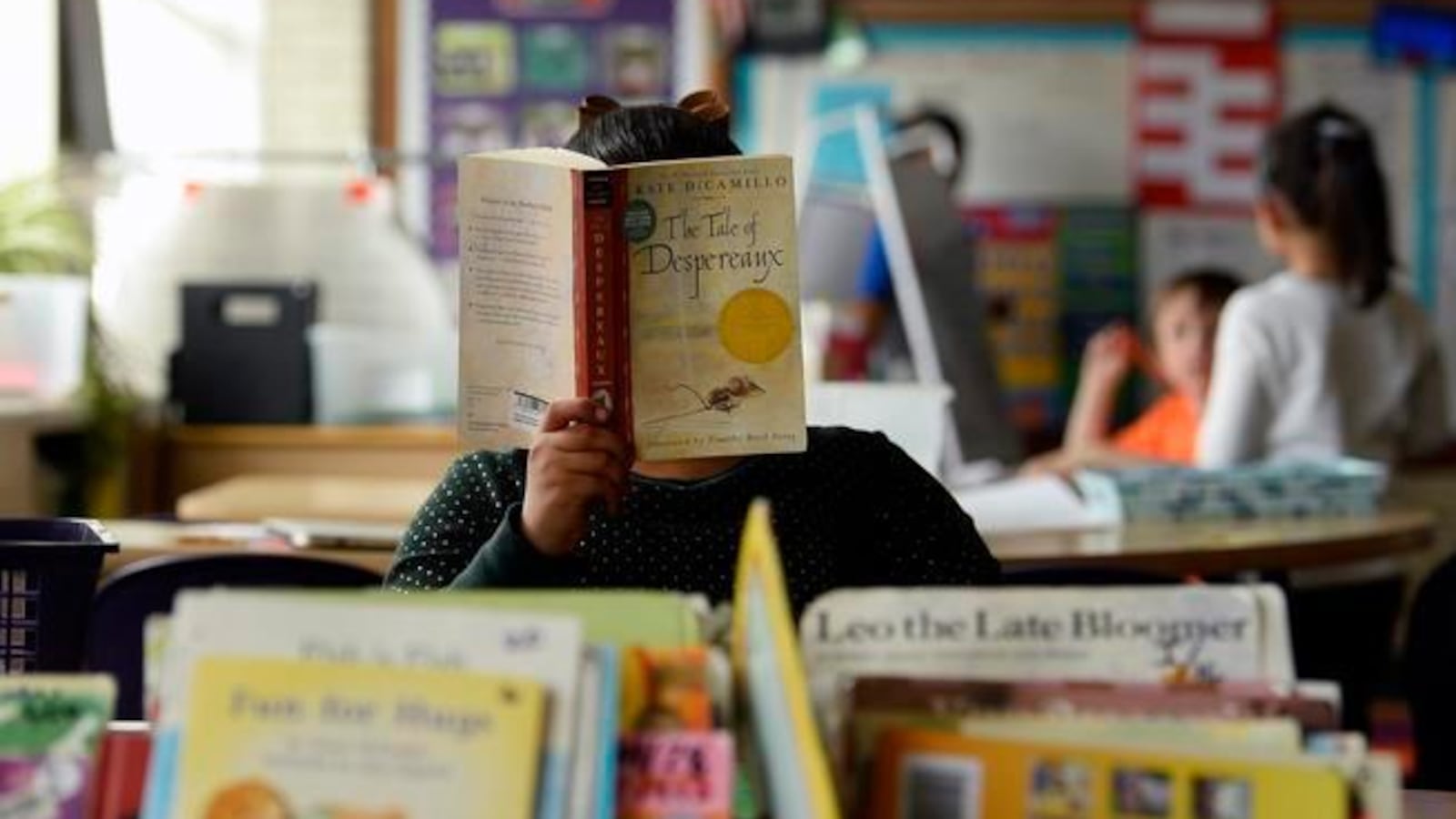Faced with tens of thousands of students who lack basic literacy skills, Colorado’s influential budget committee is holding back $33 million used to teach struggling early readers in hopes that new legislation will yield better results than the money is currently getting.
The 2012 READ Act aimed to get students reading proficiently by the end of third grade. Schools must test reading from kindergarten through third grade, identify students with “significant reading deficiencies,” and develop individualized plans to help those students.
Fewer than half of state third-graders read at grade level, tests show. The READ Act focuses attention on those who are furthest behind, lacking “minimum skill levels.”
But since the law went into effect, the percentage of students who are far below proficiency has actually increased slightly. In 2017, 18 percent of third-graders had significant reading deficiencies, compared with 17 percent of third-graders in 2014, according to Colorado Department of Education numbers.
State education officials attribute some of the increase to more widespread screening and better identification of students who are struggling to read. Also, some districts previously did not include their special education students when reporting how many students were far below grade level. Overall, about 50 percent of students on READ plans have some kind of disability.
Nonetheless, these are not the results that anyone hoped for.
“Without changes to the program … staff is unable to assure the committee that continued funding will make more of a difference,” legislative budget analysts advised the Joint Budget Committee, which met this week to discuss education funding for the 2019-20 fiscal year. They added, “changes to the program may be necessary to improve outcomes.”
State Sen. Bob Rankin, a Carbondale Republican and member of the Joint Budget Committee, said he plans to introduce a bill to address some of these problems.
In response, budget committee members agreed Wednesday not to include the $33 million for students identified under the READ Act in their proposed budget, which will be introduced in the Senate at the end of March.
That might make it harder to stick with the status quo and could motivate interested parties to come to the table around a new approach. Rankin said he’s still working on the bill details.
Legislative analyst Craig Harper said that the state does not know how schools are spending the money — an extra $835 per student for 39,600 identified students this year.
That’s a concern for advocates as well.
“We do not always know how READ Act dollars are being spent, so we would like to see some stronger reporting and accountability requirements,” said Krista Spurgin, executive director of Stand for Children Colorado, an education advocacy organization that in recent years has focused on improving early literacy. “I hope that legislators will say, ‘We want to know where these dollars are being used, so we can know what works.’”
Districts have to tell the Colorado Department of Education how they plan to use the money, such as on specialized instruction based on students’ particular needs, tutoring, or summer school. However, the department has very little information about the actual use of the funds.
Advocates have raised concerns that some districts are not using effective programs and services. Districts have broad discretion over curriculum and other instructional choices. Last year legislation supported by Stand for Children required state education officials to regularly update a list of literacy and teacher training programs, but that list is just advisory.
That law also convened experts to study the methods teachers are using to help struggling readers and make recommendations for policy changes.
This discussion is taking place amid a broader statewide and national debate about how schools teach reading. Many teachers report that they did not receive good instruction on how to teach reading in their educator preparation programs.
In addition to money for individual students, Colorado makes $5.4 million available to schools through literacy grants. Those grants help schools develop strong across-the-board reading instruction, and have shown better results than schools doing individualized READ Act lessons. The budget committee left that funding intact.
Separately, the Colorado Department of Education is running a pilot program using federal money to try specific types of reading instruction.
Another bill this session would gather recommendations to help students with dyslexia, but many of the parents of those students believe that with better instruction, their children and others could learn to read well in the regular classroom setting.
Melissa Colsman, associate commissioner of student learning for the Colorado Department of Education, said her office and members of the State Board of Education are committed to improving early literacy and want to apply the positive results from schoolwide programs more broadly.
Spurgin said Colorado needs to improve teacher training and classroom support. Ideally, every elementary school would have a literacy coach.
“We need to have a teacher prep conversation, but we have a lot of teachers in the classroom right now who need support,” she said. “Our teachers need more supports, more training, more coaching, and if we can get progress on that this session, that would be good.”

